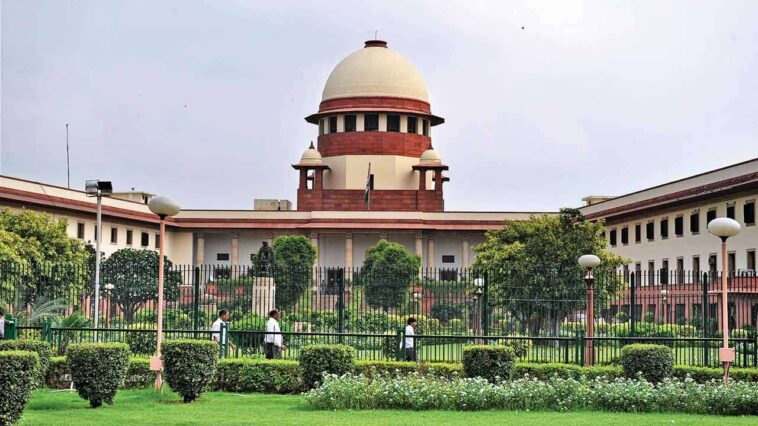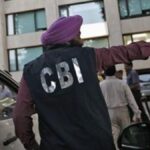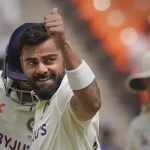Centre opposes same-sex marriage: The Centre told the Supreme Court on Sunday, in opposition to same-sex marriage, that the concept of an Indian family involves a biological man and woman and that it will be impossible for the court to change the entire legislative policy of the country, which is deeply rooted in religious and societal norms.
The Center has filed its affidavit regarding petitions for same-sex marriage. On Monday, the Supreme Court will hear a number of petitions seeking legal recognition of same-sex marriages.Living together as partners by same-sex individuals, which is now decriminalised, is not comparable to the Indian family unit concept of a spouse, a wife, and children, according to the Centre.
“It is argued that both codified and uncodified personal laws cover all branches of each religion. Depending on the applicable personal laws, the essence of marriage as an institution varies “Centre advised SC.”It is a sacrament, a sacred union for the performance of reciprocal duties between a man and a woman, in the Hindu religion. In Islam, marriage is a contract, but only between a biological male and a biological woman “it added.
Centre also emphasised that same-sex relationships and heterosexual relationships are plainly distinct categories that cannot be treated similarly.The petitions are scheduled to be heard by a bench consisting of Chief Justice DY Chandrachud, justices PS Narasimha and JB Pardiwala, according to a cause list posted on the Supreme Court’s website on Monday (March 13).
On January 6, the Supreme Court consolidated and transferred to itself all such pending petitions before various high courts, including the Delhi High Court.
The centre and petitioners are required to compile submissions.
It had stated that the counsel for the Centre and advocate Arundhati Katju, representing the petitioners, shall jointly prepare a compendium of the written submissions, documents, and precedents that will be relied upon during the hearing.”The parties shall exchange electronic copies of the compilations and make them available to the court. List the petition along with related petitions and transferred cases for directions on March 13, 2023 “According to the court’s January 6 order,
The counsel for multiple petitioners told the bench that they want the apex court to transfer all cases to itself for a definitive ruling on the issue, and that the Centre can submit its response in the apex court.On January 3, the supreme court announced that it would hear petitions seeking the transfer of pending petitions for recognition of same-sex marriages from lower courts to the supreme court on January 6.
The apex court requested the Centre’s response to two petitions seeking a transfer of petitions pending in the Delhi High Court for directions to recognise same-sex marriages to itself on December 14, 2017.Prior to that, on November 25 of last year, the apex court had requested the Centre’s response to separate petitions filed by two homosexual couples seeking enforcement of their right to marry and a directive to register their marriages under the Special Marriage Act.
A bench led by CJI Chandrachud, who was also a member of the Constitution bench that decriminalised consensual homosexual sex in 2018, issued a notice to the Centre in November of 2017 and requested the assistance of Attorney General R Venkataramani in handling the petitions.
On September 6, 2018, the five-judge Constitution bench of the highest court ruled unanimously that consensual sex between adult homosexuals or heterosexuals in a private space is not a crime, striking down a portion of the British-era penal law that criminalised it on the grounds that it violated the constitutional right to equality and dignity.In November of last year, the Supreme Court issued a notice in response to petitions requesting that the fundamental right to marry the person of one’s choosing be extended to LGBTQ (lesbian, gay, bisexual, transgender, and queer) individuals.
Also Read | On Monday Supreme Court Will Hear Petition On Same-Sex Marriages
One of the petitions requested a gender-neutral interpretation of the Special Marriage Act of 1954 in which a person’s sexual orientation is not a basis for discrimination.Section 377 of the Indian Penal Code (IPC), which criminalised consensual homosexual sex, was deemed “irrational, indefensible, and manifestly arbitrary” by the supreme court in its 2018 ruling.
It had stated that the 158-year-old law had been transformed into a “odious instrument” to harass the LGBT community by subjecting its members to discrimination and unequal treatment.




